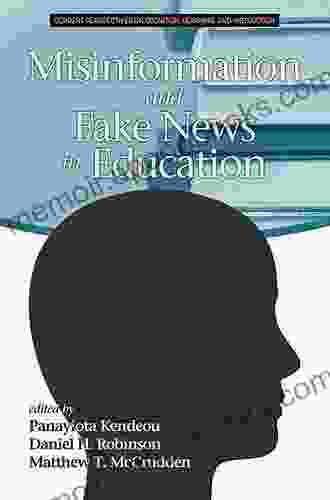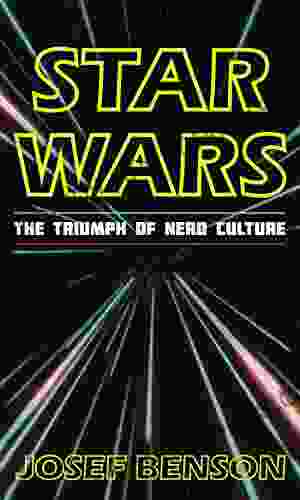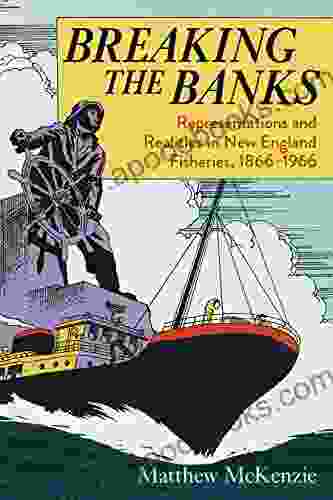Unveiling the Perils of Misinformation and Fake News in Education: A Comprehensive Guide

In the ever-evolving digital landscape, the proliferation of misinformation and fake news poses a formidable threat to the integrity of education. These malicious fabrications can undermine critical thinking, erode trust in institutions, and hinder the pursuit of knowledge. This article delves into the multifaceted nature of this issue, examining its cognitive and societal implications. We present current perspectives from experts in the field and offer practical strategies for educators and students to combat these distortions.
Cognitive Effects of Misinformation
Misinformation, defined as false or inaccurate information, can have detrimental effects on cognitive processes. When individuals are exposed to misinformation, their ability to recall and retrieve accurate information becomes impaired. This phenomenon, known as the misinformation effect, can significantly undermine academic performance and decision-making.
4.5 out of 5
| Language | : | English |
| File size | : | 1174 KB |
| Text-to-Speech | : | Enabled |
| Screen Reader | : | Supported |
| Enhanced typesetting | : | Enabled |
| Word Wise | : | Enabled |
| Print length | : | 336 pages |
Moreover, misinformation can interfere with the development of critical thinking skills. When presented with conflicting information, individuals may struggle to distinguish between reliable and unreliable sources, leading to a diminished capacity for discerning fact from fiction.
Impact on Trust in Institutions
Fake news, deliberately fabricated content designed to deceive, has become a pervasive problem in our society. Its insidious nature can erode trust in educational institutions, making it difficult for students to distinguish between credible and biased sources.
The spread of fake news can also undermine the authority of educators, as students may question the validity of information presented in the classroom if it contradicts what they have seen online. This erosion of trust can hinder the educational process and create a climate of skepticism and doubt.
Societal Consequences of Misinformation and Fake News
Misinformation and fake news have far-reaching societal consequences that extend beyond the classroom. The spread of false information can exacerbate social and political divisions, fueling polarization and mistrust.
In the realm of public health, misinformation can have dire consequences. For example, the propagation of false claims about vaccines has led to decreased vaccination rates and outbreaks of preventable diseases. Similarly, misinformation about climate change has hindered efforts to address this critical environmental issue.
Current Perspectives on Cognition
Researchers in cognitive psychology are actively investigating the effects of misinformation and fake news on the human mind. Their findings have shed light on the cognitive mechanisms underlying the misinformation effect and the factors that influence individuals' susceptibility to these distortions.
One prominent research area focuses on the role of source credibility. Studies have shown that individuals are more likely to believe information presented by credible-looking sources, even if the information is false. This highlights the importance of educating students on how to evaluate the credibility of online content.
Another line of research examines the role of cognitive dissonance. When individuals encounter information that contradicts their existing beliefs, they may experience psychological discomfort. To reduce this dissonance, they may rationalize the new information or reject it altogether. This can lead to a cycle of confirmation bias, where individuals seek out information that reinforces their existing views.
Combating Misinformation and Fake News in Education
Educators and students alike play a crucial role in combating misinformation and fake news in education. By equipping students with the necessary tools and strategies, we can empower them to navigate the digital landscape with confidence and discernment.
One essential strategy is to teach students how to evaluate the credibility of online sources. This includes examining the source's authority, bias, and the presence of supporting evidence. By fostering critical thinking skills, students can develop the ability to distinguish between reliable and unreliable information.
Educators should also encourage students to engage in fact-checking and verification. By using online tools and consulting reputable sources, students can verify the accuracy of information before sharing it with others. This practice promotes responsible information consumption and helps curb the spread of misinformation.
In addition to teaching students, educators must also model ethical behavior online. By demonstrating responsible information sharing and challenging false or misleading claims, educators can create a culture of trust and integrity in the classroom.
Finally, collaboration between educators, parents, and policymakers is essential for combating misinformation and fake news in education. By working together, we can create a comprehensive approach that empowers students, raises awareness, and fosters a society that values truth and accuracy.
Misinformation and fake news pose a significant threat to the integrity of education and the well-being of our society. By understanding the cognitive and societal effects of these distortions, we can develop effective strategies to combat them. This article has presented current perspectives on cognition and practical measures that educators and students can implement to safeguard against misinformation and fake news. By embracing critical thinking, fostering responsible information consumption, and promoting ethical behavior online, we can empower the next generation to navigate the digital landscape with discernment and integrity.
4.5 out of 5
| Language | : | English |
| File size | : | 1174 KB |
| Text-to-Speech | : | Enabled |
| Screen Reader | : | Supported |
| Enhanced typesetting | : | Enabled |
| Word Wise | : | Enabled |
| Print length | : | 336 pages |
Do you want to contribute by writing guest posts on this blog?
Please contact us and send us a resume of previous articles that you have written.
 Book
Book Novel
Novel Page
Page Chapter
Chapter Text
Text Story
Story Genre
Genre Reader
Reader Library
Library Paperback
Paperback E-book
E-book Magazine
Magazine Newspaper
Newspaper Paragraph
Paragraph Sentence
Sentence Bookmark
Bookmark Shelf
Shelf Glossary
Glossary Bibliography
Bibliography Foreword
Foreword Preface
Preface Synopsis
Synopsis Annotation
Annotation Footnote
Footnote Manuscript
Manuscript Scroll
Scroll Codex
Codex Tome
Tome Bestseller
Bestseller Classics
Classics Library card
Library card Narrative
Narrative Biography
Biography Autobiography
Autobiography Memoir
Memoir Reference
Reference Encyclopedia
Encyclopedia Gerald Everett Jones
Gerald Everett Jones Gail Fowler Mohanty
Gail Fowler Mohanty Kay Brellend
Kay Brellend Beth Harrington
Beth Harrington Aeschylus
Aeschylus Erika Johansen
Erika Johansen Karthik C
Karthik C Jay Heins
Jay Heins Megan Threlkeld
Megan Threlkeld Debo Powers
Debo Powers Ahmad Manson
Ahmad Manson Loren W Christensen
Loren W Christensen Alex Hormozi
Alex Hormozi Beata Grant
Beata Grant Samanta Schweblin
Samanta Schweblin Mary Cowhey
Mary Cowhey Jessica Hoffmann Davis
Jessica Hoffmann Davis Leon Aureus
Leon Aureus Lynn M Sargeant
Lynn M Sargeant James L Leloudis
James L Leloudis
Light bulbAdvertise smarter! Our strategic ad space ensures maximum exposure. Reserve your spot today!
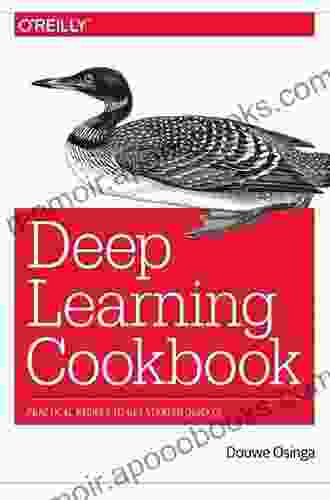
 Ralph Waldo EmersonUnlock Culinary Secrets with "Practical Recipes To Get Started Quickly": A...
Ralph Waldo EmersonUnlock Culinary Secrets with "Practical Recipes To Get Started Quickly": A...
 Gerald ParkerGreen Tree Frogs Handbook: A Comprehensive Guide to the Care and Captivity of...
Gerald ParkerGreen Tree Frogs Handbook: A Comprehensive Guide to the Care and Captivity of... Earl WilliamsFollow ·18.3k
Earl WilliamsFollow ·18.3k Leslie CarterFollow ·5.6k
Leslie CarterFollow ·5.6k Giovanni MitchellFollow ·9.6k
Giovanni MitchellFollow ·9.6k Albert CamusFollow ·2.7k
Albert CamusFollow ·2.7k Thomas PowellFollow ·19k
Thomas PowellFollow ·19k Charles ReedFollow ·2.4k
Charles ReedFollow ·2.4k Gus HayesFollow ·16k
Gus HayesFollow ·16k Herb SimmonsFollow ·5.6k
Herb SimmonsFollow ·5.6k
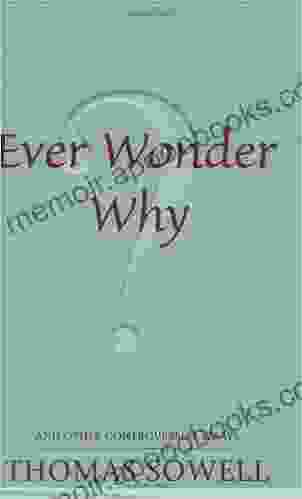
 Jamie Bell
Jamie BellUnlock Your Mind with "Ever Wonder Why And Other...
Prepare to...

 Robert Frost
Robert Frost30 Day Betting Challenge: Transform Your Betting Habits...
Are you tired of...

 Derrick Hughes
Derrick HughesWhat Is Victory In War? Unraveling the Enigma of Triumph
The Illusion...

 Jesse Bell
Jesse BellThe Shooters: A Gripping Presidential Agent Novel That...
Enter the Shadowy World of...
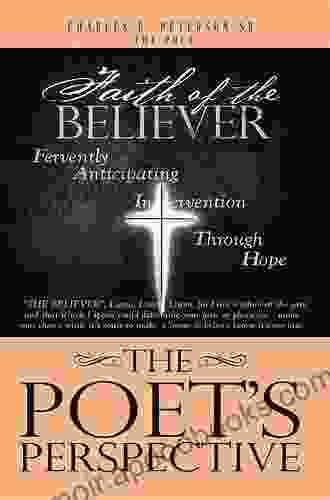
 Ernest Hemingway
Ernest HemingwayUnlocking the Theological Depths of Paul Claudel: An...
Prepare to embark on an...
4.5 out of 5
| Language | : | English |
| File size | : | 1174 KB |
| Text-to-Speech | : | Enabled |
| Screen Reader | : | Supported |
| Enhanced typesetting | : | Enabled |
| Word Wise | : | Enabled |
| Print length | : | 336 pages |


